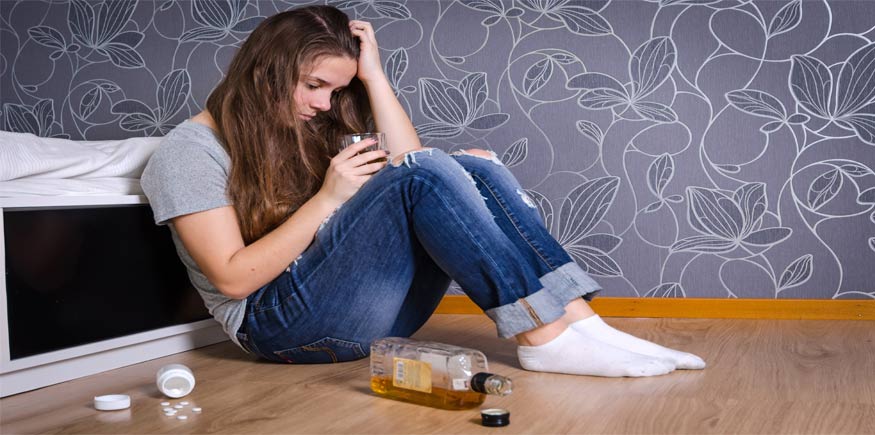
Experimentation with drugs in adolescents is quite common, but there is cause for concern. Many teens who do use drugs in their early teen years are likely to become addicted to them when they enter into adulthood and subsequently spend time in a drug rehab or much worse. Since the brain is not fully formed as a teenager, addiction can happen quickly, thus leaving your teen in danger.
It is important that you take the time to learn what teen drug abuse looks like and what to do. You may just be saving your child’s life. Below, we will go over what to look for and help you identify the signs that indicate there may be a problem.
Signs to Watch For Before You Need to Book into Drug Rehab;
While your teen may try to hide the fact the he or she is experimenting with drugs, continued drug use will eventually show symptoms and there will be warning signs. Some of the most common signs to look out for include:
- Intense feelings of hunger
- Poor grades in school or poor performance in extracurricular activities
- Irritability and anger
- Lethargy and tiredness
- Loss of interest in activities that were once stimulating to the teen
- Decline in the way your teen cares for himself or herself
- Hanging out with known dealers or teens who experiment and use drugs
Your teen’s behaviour will change if they are using drugs, so you need to pay attention to the changes that happen. It is normal for all teens to go through puberty, which can cause some irritability and laziness, but if it is marked with additional symptoms, then you should explore the situation more.
If you believe that your teen is abusing drugs, you should attempt to communicate with him or her. The first thing you want to keep in mind is that you do not want to get angry, as this will instantly close the door between you and your teen.
Always be open to communication and let your teen know that you are there for them and when they do talk, listen without passing judgement.
Does Your Teen Admit or Deny the Problem?
If your teen does admit to having a drug problem, you should get them help. You want to make sure you discuss the effects of drugs with them and if the drug problem is severe, a treatment facility may be recommended.
Teenagers who feel like they have the support of their parents are more likely to stop using drugs and confide in them. Yelling and punishing your child can lead to further drug use and anger.
If your teen denies that there is a problem and you know that there is, you should seek help for your child. Your teen’s pediatrician or counselor can help recognise any warning signs and also refer your child to a drug treatment facility if it is required.
Explain the Consequences
Whether or not you have asked your child if they are using drugs, you should at least sit down with your child and discuss the effects that drugs can have on their life and let them know what types of punishments they may receive. Sometimes, the thought of jail or getting caught is enough for a teen to stop using drugs.
If you have recently found out that your child may be using drugs, check for some of the warning signs. You can always sit down and try to have a humble conversation with them and let the conversation lead you on how to proceed.
